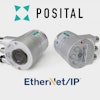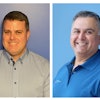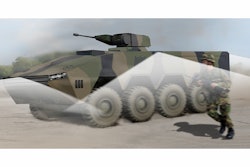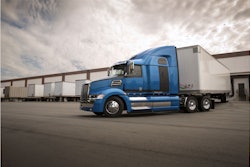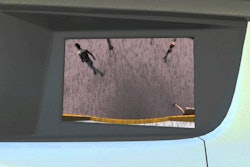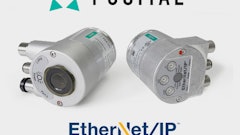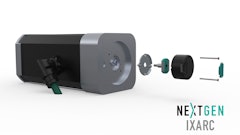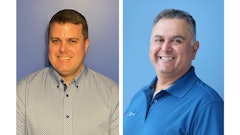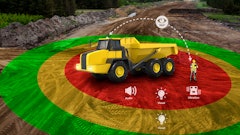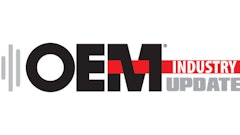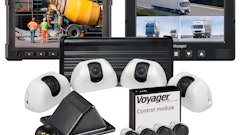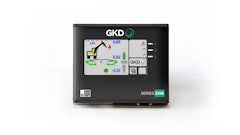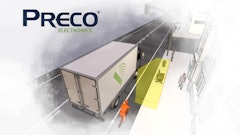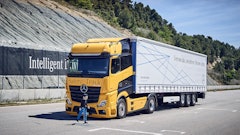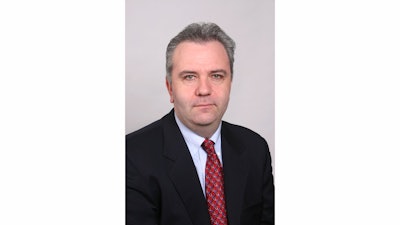
[GLOBAL] What are the economies you are looking at for future expansion and growth?
To start, ORBCOMM is in a growing industry, “the internet of things,” and there’s this technical transition where nearly everything with a microprocessor on it has an opportunity to be connected. It’s been long to develop, but after years we’re seeing this trend take off in a big way, we're looking at global expansion, the ORBCOMM solutions we’ve been providing have been a U.S. effort and just recently we started to expand globally; and the first expansion was into Europe where we bought Euroscan (learn more, 11334606). Euroscan had a large position in the cold chain transportation market in Europe with OEM relationships Carrier and Schmitz Cargobull. We're looking to grow geographically to new vertical markets and new capabilities.
[GLOBAL] What was the reason ORBCOMM chose Europe as the first area to expand outside of the U.S.?
It’s a huge market; it’s even bigger than the United States. And our applications, which are typically around logistics and efficiency, and getting transportation heavy equipment companies a return on investment, are really well suited for those markets. Some of the third world markets, most of the applications center on security. In the United States we’re trying to get a few more gallons of gas and fix assets before they break, in some other markets it’s more ‘my truck’s being hijacked, I need to sound the panic alarm.’ It’s not that ORBCOMM can’t do those applications, it’s just that the ones we’ve built today are tailored for the logistics market.
[CONSOLIDATION] Have you seen an increase in industry consolidation through mergers and acquisitions this year over previous years?
Well we’ve bought six companies in the last few years, so we are a consolidator in the industry. If you look around the industry, a lot of companies got acquired—XRS Technologies, the Omnitracs division of Qualcomm, Kore Wireless is just on the cusp, I think they’re about to close a deal, RacoWireless is rumored, Danaher has done three or four different acquisitions, Vista Capital’s rolled up a couple [acquisitions]. I would say it’s the very essence of consolidation.
[CONSOLIDATION] How do ORBCOMM’s recent acquisitions fit into the company’s current and future business goals?
The M2M business has historically been made up of very small entrepreneurial companies that didn’t have the scale to close large deals. We thought when we came out of the recession of 2009 our trailer was hitched to guys that couldn’t hit the growth points that we needed, so we acquired a bunch of technologies, put our balance sheet behind them, put our engineering support behind them to create this technology that can hit the price points and close the larger deals, and that’s just what we’ve done. We’ve acquired technologies that have added capabilities, we’ve acquired into some new vertical markets we can sell into and new geographies. If you can have the capabilities and the technologies, and the new geographies, and be able to transition those technologies to the new geographies, you should be able grow exponentially.
How does ORBCOMM intend to further target the markets it sells into?
We look for markets that take advantage of our synergies and what the ORBCOMM capabilities are. If you look at ORBCOMM, we own 33 satellites which is kind of unique, there’s not too many companies that do that, so we have our own form of connectivity. We have our own device management portal. We build millions of dollars in hardware and growing, and we’ve got a bunch of solutions architects, and there’s 110 technical resources that support the different projects we’re working on, which makes us one of the biggest guys in the world in this market. If there’s a vertical market or geography that we think is well suited for our capabilities then we’ll go after it. In some cases we’ll buy a company, some cases we’ll build new technology that suits the market and in some cases we’ll partner with another party and sell into those markets. So we’ve got great examples of all three. On the buy side we bought StarTrack and PAR LMS which got us into the transportation business, but for the most part cold chain. We bought MobileNet which got us into heavy equipment; we bought GlobalTrak, that got us into the government markets, and then we bought Euroscan which moved our distribution out of solely just the U.S. and also put us pretty solidly into Europe. So there’s some great examples of smart acquisitions. On the build side, we built a custom-made intermodal product for a hub, we built a product for Doosan (learn more, 11142310), we built a trailer tracking unit, and this was something that was all developed in house. On the partner side we signed distribution agreements with [companies] like Verizon and Rogers and the satellite company Inmarsat—we have the ability to sell products through their distribution which is far greater than ours. Those are just some of the ways that ORBCOMM can continue to expand our distribution and grow.
What new challenges have arisen that effect the way you design or manufacture your product? How you do business? How you go to market?
If you look at where ORBCOMM is in the market, we typically do large deployments, and there’s some customization in the deals we close. [Others are] dealing with kind of a canned product—they can buy it, package it off the shelf, sell it in small quantities and they’re great at doing that. ORBCOMM is kind of at the other side of the business where you close 28,000 units with Hub Group or 40,000 units over time with Doosan, and these are highly complicated, technically customized solutions. The struggle we deal with is typically on the customization and the execution side. If you would have asked me what keeps me up at night two years ago, and my board did just about every quarter, it was launching satellites, launching satellites, launching satellites. But now that the first of two launches replaced a good portion of our constellation on July 14 (learn more, 11573902), and that launch was successful. The biggest concerns we have are around execution. We’re growing in different geographies, different vertical markets, different capabilities, and we’re doing it all at once, there’s a lot of busy folks at ORBCOMM, and we’re growing very quickly. Just a couple years ago the company did $30 million in sales, and now we did $29.3 million last quarter. The company has certainly grown, and we’re focused on execution.
[TECH OF THE FUTURE] What current ideas and new technologies have the most potential for future gain?
If you look at just our core business, which is selling satellite services, we’ve got a brand new constellation that has 12 to 100 times the capacity depending on the application; we had some holes in service and those holes have been filled in, it’s a much more capable network. That buiness grew at high single digits with a 14-year old constellation. Our refrigerated business is kind of exciting in that you’ve got some regulation coming in the United States, the Food Safety Modernization Act, where we have a huge share of the install base; now we think the install base is going to grow to the addressable market because of that regulation; that’s exciting. Our trailer tracking product was just put into the market just a couple quarters ago, and we’re piloting all over the industry. We barely executed on our Hub and Doosan deals that we closed on last year, and those things are ramping up. We’ve got four or five other deals we expect to close and announce in the next quarter or two, that we’ve invested many dollars and months, if not years, of work on, that’s exciting to us. We’ve got new partnerships in Marset and Verizon where we’re just at the very beginnings of training their sales staffs and we haven’t seen any of the revenues associated any of that, and that’s about to kick off. There’s so many exciting things at ORBCOMM and we’re such an inflection point that the future seems so bright, but first, we have to execute.
[POLITICS] Could you explain how, if at all, the new Food Safety Modernization Act will affect ORBCOMM?
Our refrigerated assets, whether it’s pharmaceuticals or beef or ice cream, typically moves on trucks or rail cars, and on those trucks or rail cars there are large refrigerated equipment commonly known as reefers, and ORBCOMM monitors about 85 to 90,000 of those reefers, and over the air we allow a transportation company to change settings, know fuel levels, evaluate the diagnostics coming off that reefer so they can repair it before it breaks, and basically save loads and in the meantime they let drivers drive, and there’s dispatch people can operate that machinery thousands at a time and that’s one of the capabilities that ORBCOMM brings. So as I’ve said there’s 85 or 90,000 that we monitor, but there’s roughly a million of them in the United States, and millions of them around the world. Now that regulation is already in Europe and it’s coming to the United States or it’s already passed, you can look it up, it’s called the Food Safety Modernization Act or FSMA, and they’re just in the process of putting the requirements together, and we think that in 2015 it’ll be a requirement that all of these assets are monitored and we’re well positioned to serve that market and do a really good job for our customers.
Any other thoughts or insights you want to add about what ORBCOMM is seeing for the coming year?
There’s a growing trend to monitor as many as assets as you can either for security or logistics. When we got into this business 10 years ago we were one of the pioneers, at that point the modems were thousands of dollars and they were large, and you were monitoring things like locomotives that cost millions of dollars. And now that the equipment prices are coming down to 10’s of dollars instead of 100’s or 1,000’s of dollars and ORBCOMM modems have shrunk from the size of your laptop to two-thirds the size of your credit card, as the capex requirements go down there’s more and more assets that it becomes more economical to monitor. And that’s the trend that we’re riding and it’s an exciting place to be because we’re so well positioned in this market.
